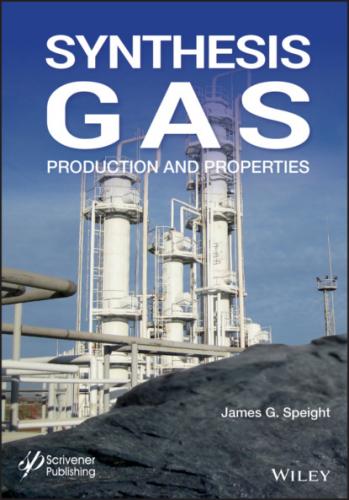Synthesis Gas - James G. Speight
| Автор: | James G. Speight |
| Издательство: | John Wiley & Sons Limited |
| Серия: | |
| Жанр произведения: | Физика |
| Год издания: | 0 |
| isbn: | 9781119707899 |
As a follow-up to the <i>Handbook of Gasification Technology</i>, also from Wiley-Scrivener, Synthesis Gas goes into more depth on how the products from this important technology can reduce our global carbon footprint and lead the United States, and other countries, toward energy independence. The environmental benefits are very high, and, along with carbon capture and renewable fuels, synthesis gas (or syngas) is a huge step toward environmental sustainability. <br style="background-color: transparent; box-sizing: border-box; color: #455464; font-family: « sourcesanspro»,"helvetica neue","helvetica",arial,sans-serif; font-size: 12px; font-style: normal; font-variant: normal; font-weight: 400; letter-spacing: normal; orphans: 2; text-align: left; text-decoration: none; text-indent: 0px; text-transform: none; -webkit-text-stroke-width: 0px; white-space: normal; word-spacing: 0px;" /><br style="background-color: transparent; box-sizing: border-box; color: #455464; font-family: « sourcesanspro»,"helvetica neue","helvetica",arial,sans-serif; font-size: 12px; font-style: normal; font-variant: normal; font-weight: 400; letter-spacing: normal; orphans: 2; text-align: left; text-decoration: none; text-indent: 0px; text-transform: none; -webkit-text-stroke-width: 0px; white-space: normal; word-spacing: 0px;" />Synthesis gas is one of the most important advancements that has ever occurred in energy production. Using this technology, for example, coal, biomass, waste products, or a combination of two or more of these can be gasified into a product that has roughly half the carbon footprint of coal alone. Used on a massive scale, just think of the potential for reducing carbon emissions!<br style="background-color: transparent; box-sizing: border-box; color: #455464; font-family: « sourcesanspro»,"helvetica neue","helvetica",arial,sans-serif; font-size: 12px; font-style: normal; font-variant: normal; font-weight: 400; letter-spacing: normal; orphans: 2; text-align: left; text-decoration: none; text-indent: 0px; text-transform: none; -webkit-text-stroke-width: 0px; white-space: normal; word-spacing: 0px;" /><br style="background-color: transparent; box-sizing: border-box; color: #455464; font-family: « sourcesanspro»,"helvetica neue","helvetica",arial,sans-serif; font-size: 12px; font-style: normal; font-variant: normal; font-weight: 400; letter-spacing: normal; orphans: 2; text-align: left; text-decoration: none; text-indent: 0px; text-transform: none; -webkit-text-stroke-width: 0px; white-space: normal; word-spacing: 0px;" />Synthesis Gas covers all aspects of the technology, from the chemistry, processes, and production, to the products, feedstocks, and even safety in the plant. Whether a veteran engineer or scientist using it as a reference or a professor using it as a textbook, this outstanding new volume is a must-have for any library.
